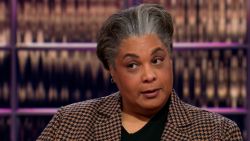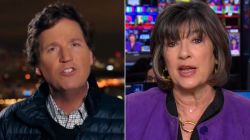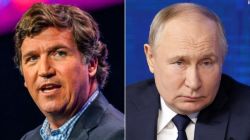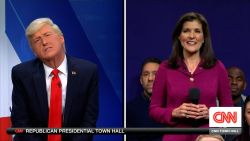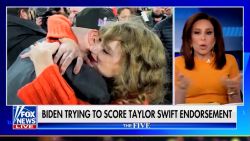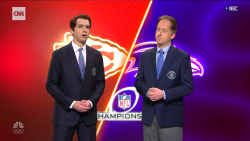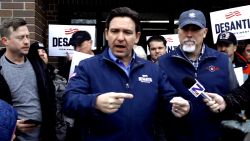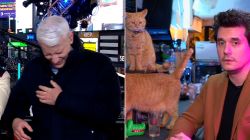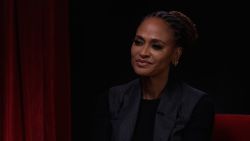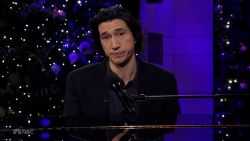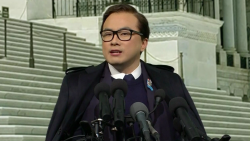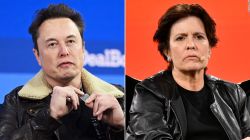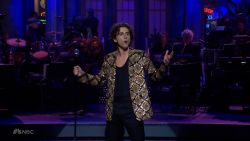The coronavirus outbreak at the White House is now the biggest story on the planet, but at 9:49 p.m. Thursday, it was just an aside during President Trump’s phone call with Sean Hannity.
The two men were ten minutes into a live chat on Fox News when Hannity said, “By the way, some news broke earlier this evening.”
He brought up Bloomberg’s report about Trump aide Hope Hicks testing positive for the disease. “Yeah,” Trump said, not sounding thrilled to talk about it.
Hannity asked for an update and Trump’s answer is now preserved for history as his last public statement about the virus before his diagnosis, too, became public.
“She did test positive. I just heard about this. She tested positive,” Trump said.
He didn’t elaborate on when he heard, but he made it sound like late-breaking news, and if true — and perhaps even more if not true — that impression he gave is relevant to the timeline of Covid-19’s spread within Trump’s inner circle.
“She is a hard worker,” Trump said, “a lot of masks, she wears masks a lot. But she tested positive.”
Trump may not have intended this, but his use of the word “but” — saying Hicks frequently wore a mask “but she tested positive” — is in line with his long-expressed skepticism about masks. It is also, as he should know, contrary to the point of wearing a mask, which is primarily to protect an infected wearer from spreading the virus to others.
Then, in the call with Hannity, Trump volunteered some information about his own health: “I just went out with the test, I’ll see, ‘cause, you know, we spend a lot of time — and the first lady just went out with a test also.” He seemed to be acknowledging close contact with Hicks. “So whether we quarantine, or whether we have it, I don’t know,” he said.
His tweet announcing that he and his wife had both tested positive came just three hours later.
On the phone with Hannity, Trump then laid out something amounting to a defense of Hicks and any other White House aide who tests positive for the coronavirus: “You know, it’s very hard — when you’re with soldiers, when you’re with airmen, when you’re with the Marines, and the police officers — I’m with them so much. And when they come over to you, it’s very hard to say, ‘Stay back, stay back.’”
He laughed a little bit. “It’s a tough kind of a situation,” he said, “it’s a terrible thing. So I just went for a test, and we will see what happens. I mean, who knows.” That’s a default statement of Trump’s — “we will see what happens” — that he sometimes just uses to fill the space between sentences.
“You know Hope very well, she is fantastic,” Trump continued, “and she has done a great job. But it is very, very hard when you are with people from the military, or from law enforcement, and they come over to you and they want to hug you and kiss you because we really have done a good job for them. You get close, and things happen.”
Trump’s comments were interpreted by some listeners as assigning blame. “Yes,” CNN anchor Brianna Keilar wrote on Twitter, “the president is pointing the finger at the military and law enforcement as the people from whom Hope Hicks likely contracted coronavirus.”
Trump circled back around to this explanation, really an excuse for defying social distancing guidelines, a third time: “You have to treat our people great. You can’t say ‘Stay away, stay away.’ They come up to you, they have such love with what we’ve done for them. There’s such love. You have to treat our people great.”
Then Trump began to answer a question from Hannity about vaccines and therapeutics. Trump generically said that “I think the vaccines are coming quickly,” and then he baselessly suggested that some drug companies don’t want to provide a vaccine until after the election for political reasons.
Trump concluded by saying again that he was awaiting his test result: “I will get my test back either tonight or tomorrow morning, but I spend a lot of time with Hope and so does the first lady, and she’s tremendous.” He said “I was a little surprised” when Hicks tested positive, and again justified her socialization: “She is a very warm person, she has a hard time — when soldiers and law enforcement come up to her, you know, she wants to treat them great, not say ‘Stay away, I can’t get near you.’ It’s a very, very tough disease.”
There was a note of resignation in his voice as he said “it’s a very, very tough disease.”
Hannity then steered the conversation to much happier territory for Trump: the boogeyman of voter fraud.
At 1:01 a.m. ET, an overnight Fox News anchor interrupted a rebroadcast of Hannity’s show with breaking news: The president had the virus.



